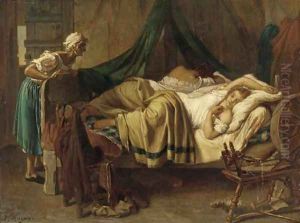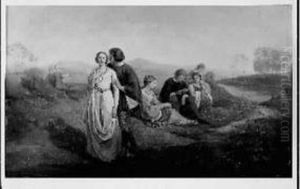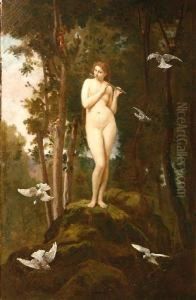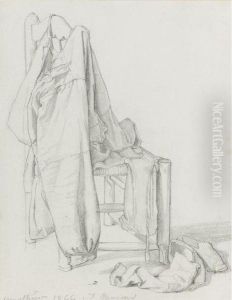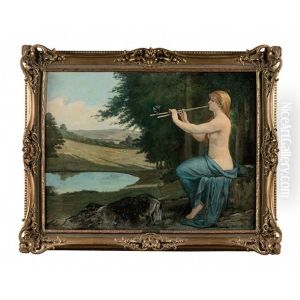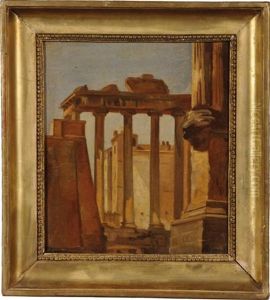Jules Joseph Meynier Paintings
Jules Joseph Lefebvre was a French figure painter, educator, and theorist. Born on March 14, 1868, in Tournan-en-Brie, Seine-et-Marne, he was known for his portraits and female nudes, which were characterized by their elegance and polished finish. Lefebvre's work reflects the academic art tradition of the late 19th century, which emphasized classical ideals of beauty and technical virtuosity.
Lefebvre studied at the École des Beaux-Arts in Paris under Léon Cogniet and began exhibiting his work at the Paris Salon in 1865. His early submissions to the Salon garnered him several medals, and in 1870, he won the prestigious Prix de Rome for his work 'The Death of Priam'. This accolade afforded him the opportunity to study at the French Academy in Rome, housed in the Villa Medici, where he honed his skills and absorbed the works of the Italian Masters.
Throughout his career, Lefebvre was a highly respected figure in the Parisian art world. He became a member of the Académie des Beaux-Arts in 1898 and served as a professor at the École des Beaux-Arts. Lefebvre influenced many young artists through his teaching, and his academic approach to painting remained influential well into the 20th century.
His most acclaimed works include 'Chloé', 'La Vérité', and 'La Cigale', each showcasing his ability to render the human figure with grace and precision. Despite the eventual shift in artistic tastes towards Impressionism and Post-Impressionism, which moved away from academic strictures, Lefebvre's reputation as a master of figure painting endured.
Jules Joseph Lefebvre died on February 24, 1933, in Paris. His legacy is preserved in the collections of many major museums, and he is remembered for his contribution to the academic art tradition and his influence on a generation of artists.

